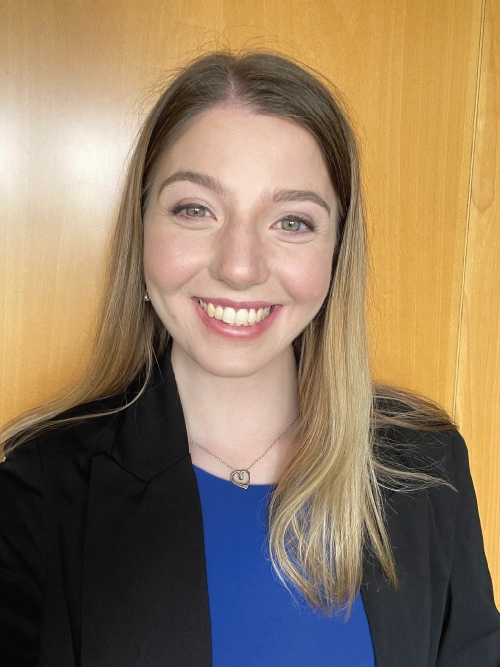
Research profile
Lorna Fanthom
PME in Primary Education
Lorna’s familial experience, along with working with children diagnosed with ASD in a mainstream and ASD classroom, prompted her keen interest in the different types of provision within mainstream schools for children with ASD.
Research Paper Title
‘No One Size Fits All’: Exploring the Impact of Inclusive Education on the Social Development of Children with Autism Spectrum Disorder (ASD) in Primary Schools, with Particular Attention to the Role of the Teacher
Abstract
The number of children with Autism Spectrum Disorder (ASD) in primary school classrooms is increasing. Special classrooms and mainstream classrooms are two types of learning environments that exist for children with ASD in an inclusive mainstream school. This study found that to provide the right learning environment for a child with ASD, there needs to be increased communication and collaboration amongst all stakeholders to identify and cater for the individualised learning needs of each child. A holistic approach and a diverse learning environment that is accepting of all children’s individual needs and experiences are needed for a successful inclusive environment that would promote the social development of a child with ASD.
Biography
Lorna Fanthom graduated with a Bachelor of Arts (Hons) Degree in Geography and Philosophy from University College Dublin. Following this, she undertook the Professional Master of Education (PME) in Primary Education in Hibernia College and graduated with a Second-Class Honours in 2021. Lorna has since completed her NQT year where she taught Third Class and completed Droichead in a primary school in Co. Wicklow. She has always had a personal interest in ASD and has three cousins and an uncle who are all diagnosed with ASD. This familial experience, along with working with children diagnosed with ASD in a mainstream and ASD classroom, prompted her keen interest in the different types of provision within mainstream schools for children with ASD. Lorna is currently teaching Third Class.
Research motivation
Can you tell us a bit about your research project?
My research project explores how inclusive education impacts the social development of children with Autism Spectrum Disorder (ASD) and it also looks at the role a teacher has in regard to this. There is a lot of debate as to whether an ASD classroom or a mainstream classroom is more beneficial to a child with ASD in relation to their social development. To carry out this research, I used documentary research as part of the integrative literature review process. Barriers to inclusive education and enablers of inclusive education were the two main themes found in the 12 research papers that were chosen. I also established 4 sub-themes which were the school environment, educational supports, children’s relationships and communication/collaboration.
What motivated you to undertake this research?
I had a personal interest in this research topic, as I have three cousins and an uncle who are all diagnosed with ASD. My uncle is non-verbal and when he was in school, there was no support as not much was known about ASD during that time. My cousins also have varied needs and they all received different types of support in school. Within a professional capacity, I had experience as a substitute SNA, a substitute teacher in an ASD classroom and had worked as a substitute teacher in many different classroom settings. From this, I gathered experience of working with children who have ASD in a mainstream classroom and an ASD classroom. As a result of this, I gained a keen interest in the different types of provision within mainstream schools for children with ASD and I wanted to learn more about how the schools cater for their varied needs.
What impact has it had on your practice?
This research has had a positive impact on my practice. It increased my awareness as it made me realise that my idea of an inclusive classroom might be different from the children’s idea of an inclusive classroom. For example, a colourful rainbow filled classroom (with the intention of being welcoming to the children) could be very overwhelming and over stimulating for a child with ASD. This means that the classroom environment could be very stressful for that child. Therefore, I have learned how vital it is to to communicate with the child with ASD in order to understand that child’s individualised needs and to build a rapport with this child.
How important do you feel research will be in your future practice?
I feel that research will always be of importance in my career and future practice. New strategies, resources and ideas are being continually created and found on a daily basis. It’s important to try and keep informed and constantly challenge your own methods and strategies to ensure that you are providing the best learning environment that you can. Research also provides the opportunity to engage with other educators and therefore, new learning and research can then be shared amongst staff which would the help the staff in each school grow collaboratively.